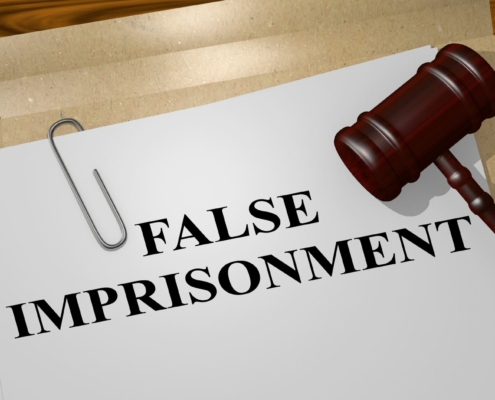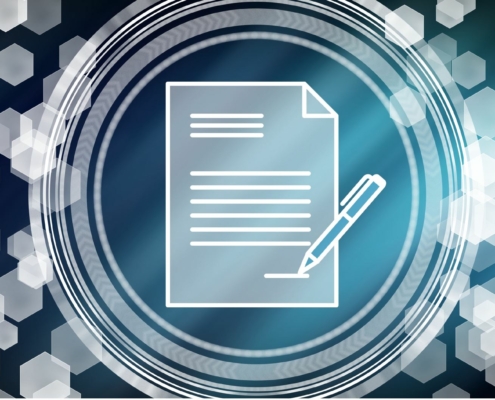A trial is a complicated and labor-intensive preparation that needs a high level of detail. As the trial date looms closer, the workload becomes more intense, especially during the final weeks, which can be quite chaotic. “Effective trial prep ensures that no detail is overlooked in these chaotic final weeks.” On the one hand, the real foundation for the construction of a powerful case starts long before that – legal squads are very carefully researching evidence, formulating their theory of the case, and creating an exciting story. To make sure that attorneys are professionally ready to make the most compelling argument, it is of great importance to study and document every point of the case, every exhibit, and any possible variable that emerges. “In-depth trial prep is key to documenting every case point meticulously.” Finding the most efficient way of organizing all the material is not an easy task. “Trial prep software can streamline the organization of these materials.”
After trial and error for many years, many civil litigation and trial attorneys find the best method for organizing and preparing a case. “Trial prep techniques evolve with experience, shaping more efficient case preparation methods.” The weeks and months spent in preparation can be much more effective if there is a detailed sequence of operations to go through and a clear model of organization to deal with the complicated aspects of the trial. “Incorporating a trial preparation checklist into this sequence can significantly enhance effectiveness.”
What Is Trial Preparation?
Trial preparation includes the gathering and arrangement of needed materials for a hearing or court case. “A comprehensive trial preparation checklist is crucial for ensuring all materials are gathered.” It is very important to present the facts in the right way and increase the likelihood of success. Poor research and failure to organize the case properly may cause an unsuccessful case.
A detailed plan will be prepared during trial preparation to guide the trial process end to end. “Utilizing a trial preparation checklist can help guide this process effectively.” Such activities include different tasks like collecting favorable evidence to the case of the client and finding evidence against it. “Preparing for trial involves meticulous evidence collection and analysis.” It encompasses the identification of witnesses, obtaining pertinent documents and evidence, as well as potentially hiring experts to provide explanations on some complicated matters. The attorney has to know every piece of evidence in and out, be able to get them easily and understand how they all go together.
The trial preparation process is complicated enough, and it is not reasonable to rely on old manual ways to obtain a favorable outcome. “Adopting modern methods in preparing for trial can significantly improve outcomes.” Modern trial preparation involves the use of software that helps in constructing a persuasive story and organizing the materials wisely.
Evidence, depositions, and requests for admission are the materials that need to be collected during trial preparation. “A trial preparation checklist ensures all these materials are collected comprehensively.” Finally, trial management tasks such as pre-trial briefs and motions, jury instructions, an opening statement, direct testimony from witnesses, or experts, witnesses for cross-examination, motions for summary judgment or directed verdict, cross-examination of opposing counsel’s witnesses, motions after testimony, closing arguments, and a record that will be available should appeal be necessary. “Each of these tasks requires thorough trial prep to ensure nothing is missed.”
Craft A Memorable Narratives and Anticipating Opposition
An effective trial preparation is significant for an attorney to be able to develop a story that will ring true with the jury. “Trial prep involves not just factual preparation but also crafting a compelling narrative.” Since jurors almost never take notes, it is extremely important for them to remember what they saw and heard during a trial. It is unrealistic to expect jurors to remember every single fact and figure presented; however, it is important to leave an impression and ensure that they do comprehend the general sense of your argument. Ultimately, when jurors gather to deliberate, you want them to remember and understand your side of the story in vivid colors.
Secondly, it is also important to review and understand the other side of the story well so that you can develop a strong counter argument. “Preparing for trial includes anticipating and preparing for the opposition’s narrative.” This is achieved by identifying the weak areas of their case and formulating counterarguments in order to powerfully refute their counterarguments. The way they will be analyzing your case while preparing for theirs means that you will need to prepare for any attacks or possible arguments that could be raised against your version of events. “Effective trial prep includes developing strategies to counter potential attacks.” By conducting thorough preparation, you can predict the possible scenarios, plan your defense strategies, and have all the resources at hand.
Build a Strong Trial Team
Paralegals, technology, and expert witnesses plays a crucial role in trial preparation. Preparing for trial is a complicated and time-consuming effort that demands cooperation from a team. “How to prepare for trial effectively often hinges on the strength of the team involved.” Usually, lawyers transfer a lot of work to the clerks and paralegals who are performing a very important role in organizing and preparing all required documents and materials for the case of a client. So as to simplify this process, many legal professionals use trial prep software to handle and distribute materials in an efficient manner.
Though paralegals and clerks deal mostly with papers associated with the trial preparation, it is necessary for the attorney to be well-informed about each aspect. “Regular briefings and updates are vital components of trial prep, ensuring everyone is on the same page.” By using the appropriate technology, lawyers can efficiently navigate the materials that were presented by their research team.
Apart from the assistance that clerks and paralegals offer, expert witnesses play a critical role in trial preparation. “Preparing for trial includes collaborating closely with expert witnesses.” These individuals have special knowledge, especially in scientific or technical areas, and are able to present the jury with factual explanations. An expert witness, according to the Federal Rules of Evidence , should possess expertise, experience, training or education in their area of discipline. “Effective trial prep involves ensuring expert witnesses are fully briefed and prepared for their testimony.” They have to develop their testimony based on widely accepted facts and information in their discipline. “How to prepare for trial also involves understanding and integrating expert testimony effectively.” Various approaches taken by attorneys to prepare for trial involve selecting the right expert for a case, having him or her ready to testify, predicting what opposing counsel might ask, and fully understanding their testimony.
Managing Materials, Effective Communication, and Leveraging Technology
Pre-trial preparation is about gathering, comprehending, arranging and advocating a massive amount of material to a group of jurors. “Good trial prep involves mastering the art of material management and advocacy.” It also entails how to handle a rather intricate web of team members and materials to construct a cohesive and winning case. These challenges can be navigated if they are understood properly.
One frequent hurdle in trial preparation is communication within teammates. “Effective communication is a cornerstone of successful trial prep.” Due to the work of several stakeholders in the construction of the case narrative, it is often challenging to rein in the edits, revisions, and the general progress of the process. “Regular team meetings are essential for keeping trial prep on track.” Use of technology, such as one that allows for real-time communication, can greatly enhance collaboration and make the work faster.
The trend towards remote work further complicates the management of digital casework in the legal profession. “Adapting trial prep to accommodate remote work is essential in modern legal practice.” With the growing number of people involved in preparing a case, more information needs to be recorded, categorized, edited, and integrated. “A detailed trial preparation checklist can help manage this increasing complexity.”
Finding the crucial facts and numbers among what attorneys collect is also a challenge. This is especially difficult when dealing with depositions, which may be oral or written – transcripts or videos. “Effective trial prep involves identifying key facts and numbers from depositions.” Attorneys need a way to read through this content and identify important parts to incorporate in witness examinations. In this regard, specialized software can be incredibly helpful, providing a full solution for deposition preparation and optimized extraction of vital testimony. “Trial Prep software featuring Deposition functionality is indispensable for modern trial preparation.”
Trial Preparation Checklist
The attorney will have collected a huge mass of material by the time the trial date is approaching. “Utilizing a trial preparation checklist can ensure no crucial aspect is overlooked.” It is quite a challenging task to ensure organization and deal with every detail before the trial. One possible solution is to generate a checklist of the tasks that need to be accomplished before the trial starts. “A well-thought-out trial preparation checklist is a valuable tool for attorneys.” This approach keeps things orderly for the attorney to ensure that there is a methodical approach so that nothing important is overlooked. “Regular reviews of the trial preparation checklist help maintain focus and organization.” Counting down should begin about three months before the trial. “A trial preparation checklist should be tailored to count down to the trial date effectively.”
Three months before trial
it is important to focus on completing any outstanding discovery first. “Preparing for trial at this stage involves meticulous attention to discovery.” Spend time going over all materials and addressing all unresolved matters. Additionally, make sure to accomplish the following tasks:
One should focus on any discovery tasks pending three months before trial. “Detailed trial prep at this stage sets the foundation for a strong case.” Spend time carefully reading through all materials and resolving any pending issues. Additionally, make sure to complete the following steps:
- Make sure your witnesses are available and see which topics your expert witnesses would be testifying about. “Part of preparing for trial is ensuring witness availability and clarity on their testimonies.”
- Start with gathering some basic evidence in which charts and maps can be included as visual aids. “
- Schedule meetings with clients and experts to hear matters, expenses, alternatives, and predictions on outcomes.
- Evaluate the requirements of the technology for presenting your case and make sure you have the appropriate devices and professional help, if necessary.
- Identify the witnesses you want to testify during the trial and coordinate with them so that they are able to attend the trial. Or, you may want to consider recording depositions so that they may be used as documented evidence in court in case something goes wrong.
One Month Prior to Trial
- During this crucial period of trial preparation, the legal team must attend to the following responsibilities and ensure all loose ends are tied up:1Meet clients and prepare them properly for their appearance before the witness stand.2. Prepare witness depositions or statements that will be recorded
3. Develop a complete plan of all the factors that will help you strengthen the story of your case at the trial.
4. Make sure that all witnesses are fully prepared for their upcoming testimony and carefully acquaint them with scheduling and relevant changes.
5. Make the trial brief that will define the level of arguments and evidence to be used in the trial.
6. Write powerful introductory and closing statements that will showcase your case in a way that only the jury will understand.
7. Start writing the jury instructions to cover any legal issues which may come up in the trial.
8. Prepare a list of questions for every witness that you will ask the court to bring in as a witness and gather and organize all exhibits that will be introduced for their testimony.
9. Compile notes on legal issues that have been identified and may be raised during the trial.
Tips for Preparing for Trial
Though for an attorney to have diligently prepared for the weeks before a trial, the days leading up to it can still be crushing to all persons involved. Sometimes there are various surprise tasks to do and new problems to solve. Along with the stress of trial preparation over the last three months, this additional pressure could become a burden on both the attorney and the remainder of the team.
The best thing to do is to be fully prepared for the possible difficulties. The following advice can contribute to a smoother process.
Using Technology for Efficient Court Case
Technological tools can significantly improve and streamline all aspects of a court case, from trial preparation to the question and answer period. Lawyers need to use the tools available today to be more efficient and reduce the probability of missing important details. By giving their legal teams secure and collaborative technology platforms, lawyers can guarantee that their team can work together with ease and present their arguments in a structured manner. This eliminates issues associated with version control and encourages a compelling story.
Thorough Planning for Success
A successful case is based on thorough and careful preparation. Even the most competent attorney may end up unprepared and unequipped to argue their client’s case without proper planning. Tools that assist in preparation, organization, and planning are particularly helpful for attorneys who do not want to leave anything to chance.
Effective Communication is Key
Although the attorney is the most prominent figure in a court case, the victory of the case is determined by the collective effort of multiple people, including clients, paralegals, and other support staff. It is necessary to ensure that everyone is in alignment and working together to achieve the same end goal. Effective communication between the team members is the only way to make sure each person is aware of their responsibilities and knows what to do in response to any unexpected issues.
More costs and burdens translate to poor communication tools for legal teams and their clients. For example, an effective trial preparation platform enables litigators to upload vital documents and arrange them in a timeline along with relevant people and events annotations. It also assists in incorporating evidence during preparation for deposition and in the identification of important testimonies.
Preparing Witnesses for Success
Being a witness, that is, being called to the witness stand and going through a rigorous process of questioning, can be a nerve-racking occurrence even for the most poised people. Through pre-trial preparation, witnesses, by conducting question and mock crossway processes, eliminate the shock and anxiety of being on the stand. Attorneys themselves can get nervous or overlook something important, so it is not surprising that a novice witness will be nervous in the face of heavy interrogation. Simulating a courtroom scene enables everyone involved to know how to react and provides the attorney with the most opportunity to succeed with the jury.
Crafting a Compelling Narrative
Preparing for trial involves developing a compelling narrative. If the story is credible, achievable, and unforgettable, it is more likely to connect with the judge and jury. Conversely, if the attorney does a poor job of presenting the case, the evidence that is presented may hold little weight with the judge and jury.







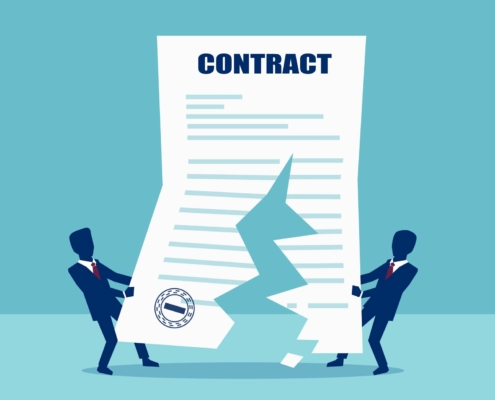




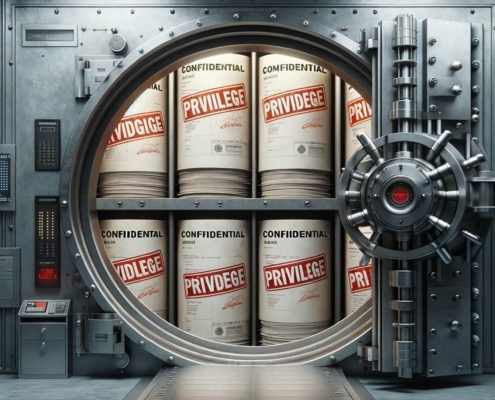
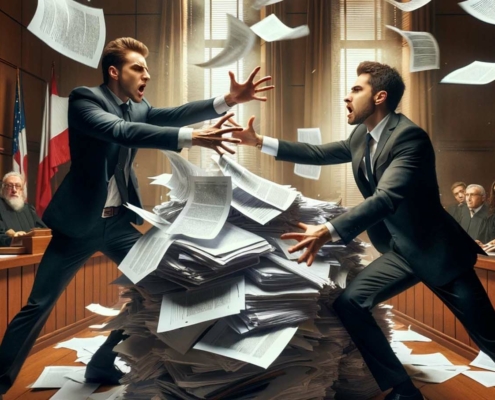
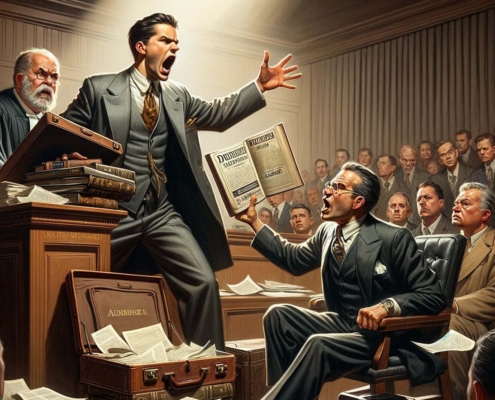

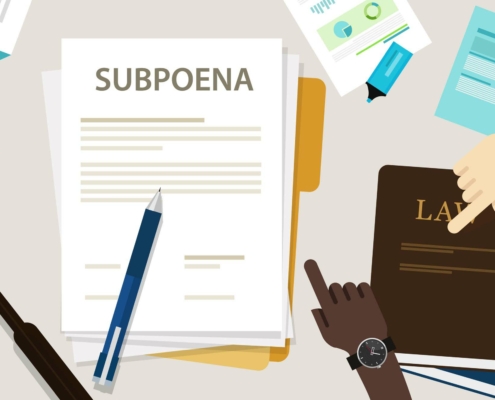
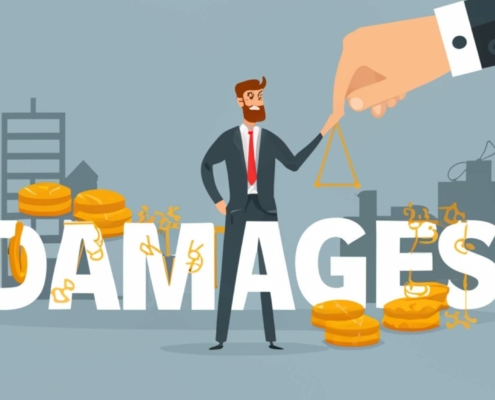
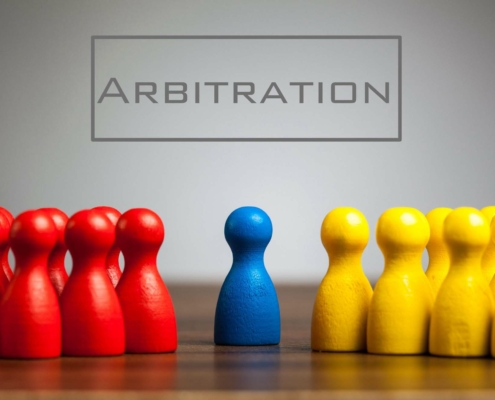
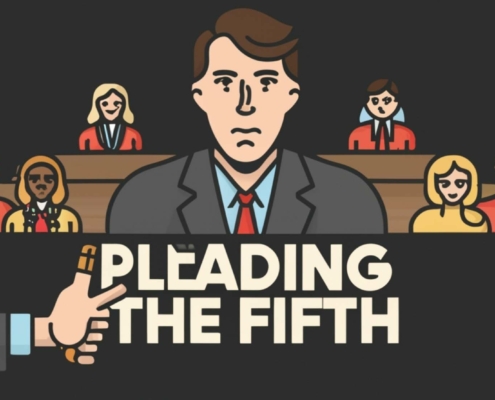
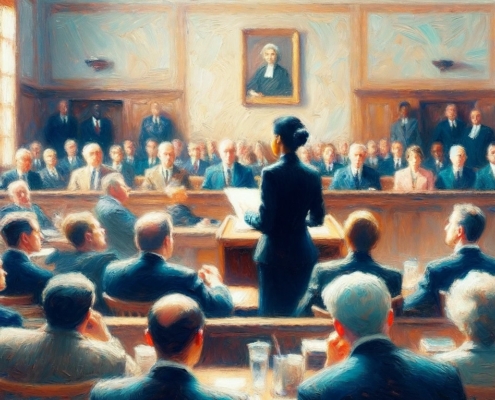

 By: Brad Nakase, Attorney
By: Brad Nakase, Attorney